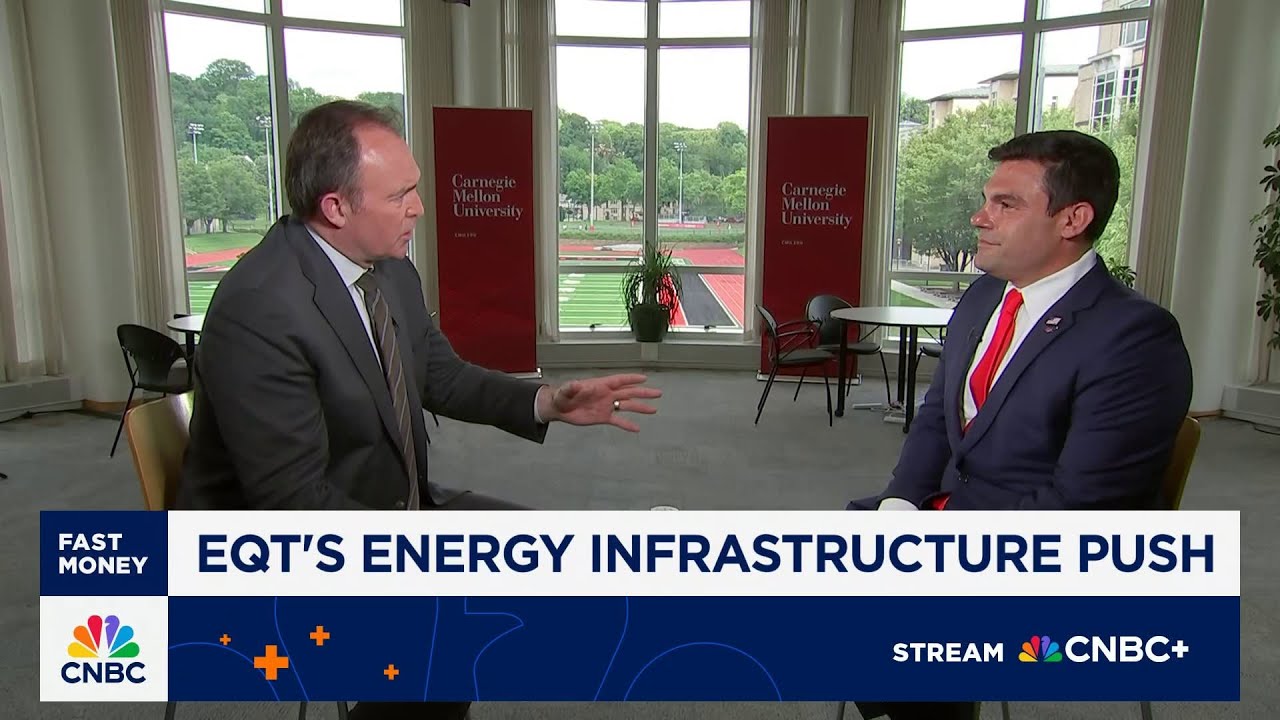EQT CEO Toby Rice highlighted a $92 billion commitment to energy and AI infrastructure in Pennsylvania, emphasizing the state’s potential as a key AI hub powered by EQT’s natural gas supply, which is crucial for meeting the massive energy demands of AI development. He also stressed the need for permit reform and streamlined infrastructure development nationwide to support this technological growth and ensure sustainable energy solutions.
In a recent CNBC Fast Money interview, EQT CEO Toby Rice discussed the significant commitment of $92 billion towards energy and AI infrastructure, emphasizing the confidence that much of this investment will materialize into tangible projects. Highlighting the presence of major companies like Blackstone and the involvement of high-profile political figures, including former President Trump and several cabinet members, Rice underscored the importance of Pittsburgh as a burgeoning ecosystem for AI development. He stressed that the city, with its rich industrial history and resources, is well-positioned to become a central hub for this technological revolution.
Rice drew parallels between Pittsburgh’s historical role as the Steel City and its potential future in AI, noting that just as coal and rivers fueled the steel industry, natural gas will be a critical energy source for AI infrastructure. He pointed out that the AI value chain demands massive amounts of energy, and natural gas, particularly from EQT, will be the fastest, most cost-effective, and cleanest solution available. EQT’s announcement to supply over 1.4 billion cubic feet (BCF) of natural gas per day signals a decade of sustainable growth and highlights the scale of energy required to power AI advancements.
To put the scale into perspective, Rice explained that one BCF of natural gas per day is enough to power New York City, which consumes about 5.5 gigawatts of energy. EQT’s commitment of over 1.4 BCF daily represents a major energy supply capable of supporting large-scale AI data centers and other infrastructure. This underscores the magnitude of the opportunity and the necessity for heavyweight energy operators like EQT to meet the growing demands of the AI industry.
Addressing potential challenges, Rice acknowledged the difficulties often associated with permitting and infrastructure development, such as building power lines and pipelines. However, he expressed optimism, citing the proactive efforts of Pennsylvania leaders like Senator Dave McCormick and Governor Josh Shapiro to streamline permitting processes and remove roadblocks. This political will, combined with Pennsylvania’s untapped potential, makes the state an attractive destination for substantial investments in energy and AI infrastructure.
Finally, Rice emphasized the broader need for permit reform across the country to enable the construction of critical energy projects, including pipelines, transmission lines, solar, and wind farms. He stressed that the current system is overwhelmed and unsustainable, and with the high stakes involved in the AI revolution, it is imperative to modernize and expedite infrastructure development. This reform is essential not only for Pennsylvania’s growth but for the nation’s ability to meet future energy demands and technological advancements.
